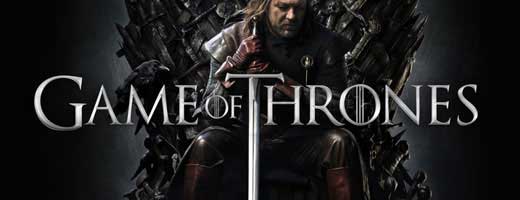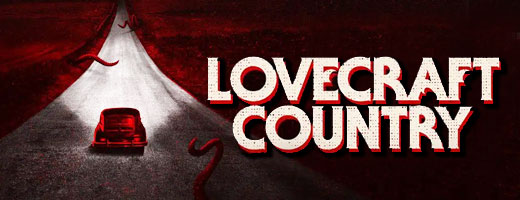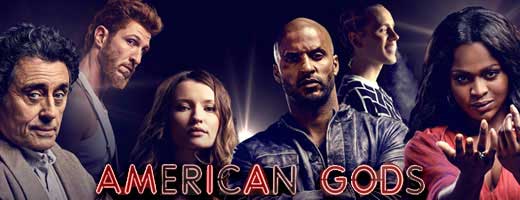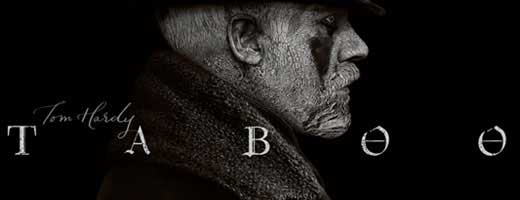GOT S8 Finding Peace In the Final Season

Have a Theory? Share It Now!
First, thank you for all the time and effort you all invest in the pod. I appreciate the approach to this season of GoT and the sobering reality of this is the story and plot we have been given and don’t let it spoil the whole adventure.
This is not much of a theory as much as a reconciling, collative thought process to wrap up the end and provide reasonable closure to walk away still enjoying the show and even Season 8. In fact, it looks like this is what the final scenes were telling us. Although, this write up will miss numerous points and glosses over important concepts, but here it goes:
Game of Thrones is a commentary on how storytelling, fantasy and mythology is used by histories, winners to justify and legitimize (propagandize?) their power.
Particularly in a medieval setting: “What unites people? Armies? Gold? Flags? Stories. There”s nothing in the world more powerful than a good story” – Tyrion
Game of Thrones was the telling of a legend written by the victors, the Starks. The whole series is their recount of the battle for Westeros after King Robert Baratheon (RIP Bobby B) was killed and Ned Stark was murdered in Kingslanding. That is where the Starks story begins.
There were never any dragons, ice zombies, faceless assassins. There was a war after Baratheon’s rule. The Starks won. The Starks wrote history. The winners all get heroic tales and send-offs. The losers are remembered as purely evil villains from deeply flawed lineages never to be heard from again. The truth of the Lannister’s and Targaryens and Starks probably lives somewhere in between the story we all just lived. This explains the prolific plot armor, story jumps, and inconsistencies along the way.
The Starks war is now over – how do they unite commoners who know nothing of the battles and events that took place. Tyrion”s answer is what GoT is; a story with a purpose to unite the commoners under the Stark”s rule, legitimize their claim to multiple thrones AND justify their violence. It is a classic medieval story of the conquering and prevailing ruler such as are the tales of the orcs from Scotland, the Knights of the Roundtable, dragons, magic, assassins, the undead – all fables for the people.
The letters JRR Tolkien wrote about what he was doing in constructing Middle-earth, his stated purpose was to build out a mythological grounding for the post-Victorian British worldview. In his view, Britain lacked a thorough and meaningful mythological self-understanding similar to what he found in other cultures he studied, and he set out to change that. What he created was a mythical world that was far removed from our actual one and closely tied to Britain’s experience of the Second World War on a symbolic level. People often talk about the ‘post-Tolkien’ era of literature. If one considers what George R.R. Martin, Benioff and Weiss have done with this story, it could be viewed as the most substantial development since Tolkien”s work to further integrate a deep mythological sense of self-understanding into the western identity, by building the exaggerated fantasy elements into a world. Examining events briefly –
• Who attacked the North? Not just foreign forces from beyond the seven kingdoms but ice zombies and their immortal king in a time when winter lasted a generation. The invading forces were unstoppable and numerous. The army was said to be unstoppable and required all the armies of the 7 Kingdoms to defend the North. By the way, all of those mythical armies were gone by the final season, but took blame for razing the capital city.
• What happened to King’s landing? Not just burned by medieval warfare but destroyed by a dragon riding foreigner who claimed to be queen and brought foreign mercenaries with her. Without satisfactory explanation, suddenly this foreign Queen turns on the people of Westeros after surrendering. The Northern forces were utterly caught off guard by this cold-blooded murder and thus had to remove this new tyrant.
• Who assassinated this Queen? The “one true king” who, as legend has it, conquered death, and now lives and reigns beyond the northern borders in the Wild arctic forests, but a relative of the great patriarch and matriarch of our two peaceful nations.
• The painfully obtuse way Littlefinger was dealt with in Winterfell when trying to play Sansa and Arya against one another. In every other situation up to that point, we see Littlefinger exercise cunning and manipulation skills masterfully, but when he is placed in a situation that involves manipulating the legendary surviving figures of the victorious Stark house, he looks silly, petty, and impotent.
• The way the Night King, in the context of the series’ narrative, seems to arbitrarily be intent on killing Bran, who ends up, like any last male trueborn heir of the victorious house, becoming king.
• All the prophecies fell flat as prophecies do. They serve as stories of hope for the future and provide divine/supernatural authenticity to the stories. The Lord of Light, Azor Ahai, the Lord of Death all serve a storytelling purpose rather than predictions.
The Stark victors:
• Jon Snow – The most promising and disappointing character, for a reason. Jon Snow was Ned”s bastard who abandoned his post at the Night”s Watch. Jon went north and brought members of the Northern wildings back south of the “Wall” which sparked the war of the North. Jon Snow defeated House Bolton to reclaim Winterfell which caused the Stark family to bring Jon back into the story as a hero. Jon Snow became the warrior who led the Starks to victory, but in the end, he was never a true Stark. Forged an alliance with the Targaryen Queen with an army to fight in the North and conquer the 7 Kingdoms.
To reconcile with the actions the Starks wrote into history R+L=J, he conquered death and was the true heir to the throne. This claim saves Ned Stark”s reputation, provides cover why Jon and Dany allied and allows the honorable Stark family to have taken the Throne by consensus after the “true king” abstains the crown and in a peace treaty heads North of the defensive lines. In the end, the Starks exile the bastard who led their war efforts to victory.
• King Bran the Broken – He becomes the narrator of the story. Bran flees Winterfell and goes into hiding. Of course, that story is not fitting of the King. The Stark story is written that journeyed on pilgrimage to become the 3ER. He achieved “greenshight” to provide accountability to the stories. Bran”s disability makes him relatable and less authoritarian to the people (FDR). Bran”s omnipotence is where his authority and authenticity to be King is derived and helps legitimize the account of the war (“ask our brother is omnipotent”).
• Queen Sansa – Sansa was a subject of medieval politics of marriage to find peace and allies. She endured the monster of House Bolton as a political marriage. The story of her treatment under Ramsey provides a just reason for the conquering of House Bolton in the Battle of the Basterds and destroying a Great House.
• Arya – The rebel Stark, who became a lethal assassin. Arya too disappeared, turning the start of the war, saw her family get slaughtered by Lord Fray and sought revenge. The story was written she became a faceless assassin and master of death – a Stark who can cut a great house down without war or warning. Arya defeated the Northern King and became equal to all the worriers. Arya, becoming the great explorer of new worlds is only fitting to her end as a shapeshift assassin that could be any of us.
I reconciled all the fantasy by realizing that Tyrion was right about stories. The whole saga is the legend of the war of the 5 kings, told through the embellished eyes of the victors and each of their heroic arc’s. It allows every storyline and plot device to be delightful, reconcilable, effective, yet meaningless at the same time.
The ending was rushed no doubt, but it also served its purpose: no magic, no revenge, no redemption for the losers, no satisfying story arcs. The ending showed how a great power destroyed the last war allegiance to consolidate power. The final scenes of a table of Tyrion”s cronies debating whether to invest in brothel construction is a glimpse into the realism of the actual world with no fantasy. Bran”s final scene of wheeling off screen, comically claiming he”ll find Drogon signals the absurd storytelling they are perpetuating. That ONE point shows that the winners openly acknowledge the absurdity of their claims (which evidently work on medival serfs AND HBO fans!). There is so much content you can point to in the show that makes it hang together as the intended message – obviously, Tyrion’s monologue at the council, at the end. However, also, most notably, the way Arya watched a staged performance of the first few seasons of the show in Season 6 – the point at which the show transitions from the Starks suffering constant defeats to steadily and relentless building to their final victory. It’s also the point at which the show passes the books – making it not implausible that David Benioff and D.B. Weiss conceived the concept of the series as a historical commentary as the intended message of the show. This is bookend at the end of the show where the book of ASOIF is presented, and they joke about how they wrote Tyrion out of history – nodding to the fact that written history is the Starks. In the end, we all got a powerful story, and the show united over 19 million people to watch a final episode. Thanks for reading, for the pod, and to all the fans who made GoT amazing.
Rocky, Tyler, Jonathan from Oregon
Subscribe Now
- Android: https://shatontv.com/game-of-thrones-android
- Apple/iTunes: https://shatontv.com/game-of-thrones-itunes
Help Support the Podcast
- Support with Paypal – https://shatontv.com/paypal
- Support With Venmo – https://venmo.com/ShatPodcasts
- Shop / Merchandise: https://shatontv.com/shop
- Shop Amazon With Our Affiliate Link – https://www.amazon.com/?tag=shatmovies-20
- Sponsor’s Listener Survey – https://shatontv.com/survey
- Leave an iTunes Review – https://shatontv.com/game-of-thrones-review
- Leave a Voicemail – (914) 719-SHAT – (914) 719-7428
- Feeds & Social Media – https://shatontv.com/subscribe-and-follow/
- Checkout our Movie Podcast – http://shatthemovies.com
- Theme Song – “Seven Nation Army (Epic Orchestral Cover)” – Ciaran Burch






